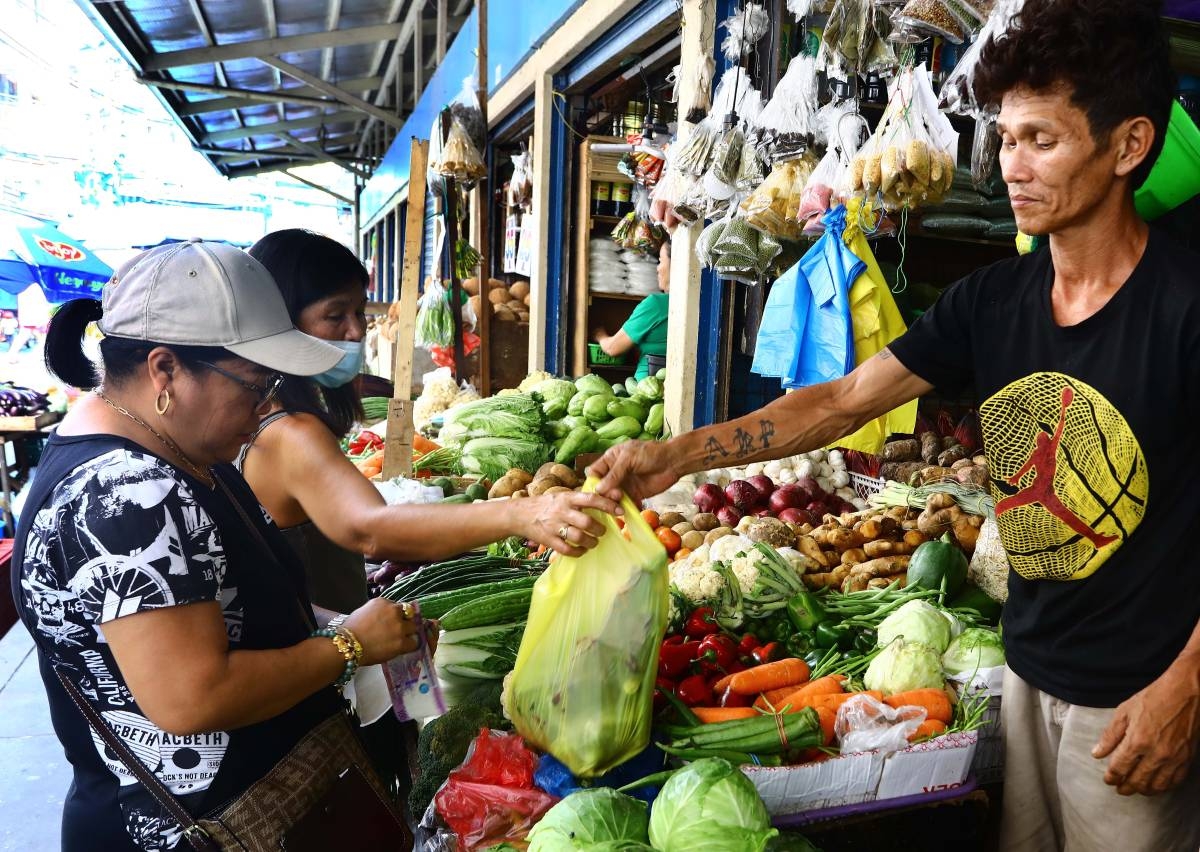The Philippine Statistics Authority reported on Tuesday that inflation in the country has markedly slowed for the fourth consecutive month in January. The inflation rate for January was 2.8 percent, down from the previous month’s 3.9 percent and significantly lower than the 14-year high of 8.7 percent recorded last year.
This result aligns with the lower-end estimate of the Bangko Sentral ng Pilipinas (BSP) for the month, which projected an inflation rate of 2.8- to 3.6-percent. It also falls below the median of 3.0 percent in a Manila Times poll of economists. Furthermore, this inflation rate remains within the BSP’s target range of 2.0- to 4.0-percent for a second consecutive month, marking the lowest inflation rate since October 2020 when it was recorded at 2.3 percent.
According to a statement from the Philippine Statistics Authority (PSA), the decrease in overall inflation in January 2024 was primarily driven by a slower annual increase in food and non-alcoholic beverages. In January 2024, the annual increment for these items was 3.5 percent, down from 5.4 percent in the previous month. Food and alcoholic beverages accounted for almost half of the overall inflation, with a 47.1 percent share or 1.3 percentage points.
The decrease in food inflation can be attributed to a sharp deceleration in price growth for vegetables, tubers, plantains, cooking bananas, and pulses. The price growth for these items dropped to 20.8 percent in January, down from 5.5 percent in December. This significant decrease in price growth contributed to the overall decline in food inflation.
Additionally, core inflation, which excludes volatile food and energy items, also decelerated in January. It dropped to 3.8 percent from the 4.4 percent seen in the previous month and 7.4 percent compared to a year earlier.
The consistent slowdown in inflation over the past four months is a positive development for the Philippine economy. Lower inflation rates can provide relief to consumers by reducing the cost of living and increasing purchasing power. It also allows the central bank to maintain accommodative monetary policies to support economic recovery and growth.
The decline in food inflation, in particular, is significant as food prices play a crucial role in the overall inflation rate. Stable or decreasing food prices can alleviate the burden on households, especially those with lower incomes, as food expenses typically comprise a significant portion of their budget.
While the current inflation rate is within the BSP’s target range, it is essential to continue monitoring inflationary pressures in the coming months. External factors such as global commodity prices, exchange rate movements, and supply chain disruptions can influence domestic inflation. Additionally, the ongoing COVID-19 pandemic and its impact on the economy and consumer behavior remain key considerations in assessing future inflation trends.
In conclusion, the Philippines has experienced a notable slowdown in inflation for the fourth consecutive month in January. The decrease in overall inflation, driven by lower food prices, provides relief to consumers and supports the country’s economic recovery efforts. Continued vigilance and proactive measures will be necessary to ensure that inflation remains within the target range and to support sustainable economic growth in the future.







